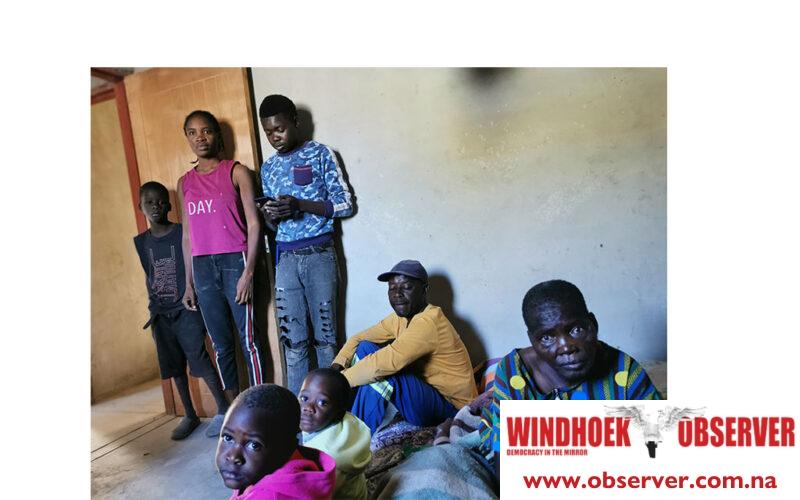Martin Endjala
In the quiet, isolated village of Omuntele, about 50 kilometres from Ondangwa, Joel Shikongo lives a life shrouded in the shadows of a tarnished legacy.
His father, Petrus Shikongo, once a proud fisherman, lost his job in 2018 as a result of the infamous Fishrot scandal that rocked the Namibian fishing industry.
“They call him Fishrot because of what he built when he was working in the fishing industry,” he said.
This nickname is a cruel reminder of his father’s association with the Heinaste freezer horse mackerel vessel, now forever linked to corruption and deceit.
“They say he can’t complete the house because the fishrot money is finished,” he said.
His father worked on the vessel until 2018 when they were retrenched.
Petrus’ once steady hands, accustomed to pulling the fishing nets, now lie idle.
The family home stands incomplete, a testament to dreams interrupted.
The over-100-meter unfenced wall remains unfinished, a stark symbol of their unfulfilled potential.
“All that my father bought when he was working. Our lives were good,’ he said.
He walks off to present the remaining three chickens from the family’s previous chicken enterprise in the village.
A young woman arrives from the field with a bunch of wood to prepare a Sunday meal for the family.
In a big black pot, porridge is boiling, ready to feed the 14 people in the homestead.
“Children in the village used to say we are rich, but now everyone is talking negative about my father, saying that he is suffering; he no longer has money,” said Joel.
He said his father was a hard worker who worked hard to bring many beneficial things to the village.
Joel’s elder sister, Megameno, who had been studying accounting and finance at UNAM, dropped out in the second year due to a lack of funds.
“Life back then was very nice when my father used to work. He used to pay for my education and take care of us. Since he lost his job, I felt deeply saddened, as I wanted to complete my studies to support my father and his family. Now that there is no money coming in,” she said.
Megameno now spends her days in the village helping her parents run what was once a successful hair salon, while she admires her classmates who are finishing their studies and graduating.
Few people visit the business because of the stigma associated with her father.
She says that the family’s situation is terrible, and they now depend on government food schemes to survive.
“We struggle to get money here and there, and sometimes my father even sells his livestock because he does not have a choice. It’s heartbreaking to see him just at home doing nothing,” she lamented.
She wants the government to help her father return to work or give him money to finish what he started building.
Petrus was a fisherman at Walvis Bay who worked for the Heinaste vessel, partly owned by the Icelandic company Samherji.
He was employed by the company from 2012 to 2018.
His family currently survives on the N$4000 he receives under the Government Employment Redressing Programme (GERP).
The story of the Shikongo family repeats itself 100 kilometres away in Otamanzi village, where Johanna Nahole lies bedridden.
Her wheelchair is useless on the sandy paths around the house, trapping her in a prison of immobility. Her brother, Severen Nahole, another former fisherman from a Samherji-owned vessel, used to transport her to medical appointments.
”My brother used to help me with his car to take me for my follow-ups or collect medicine, Oshakati, but it is so difficult,” she said.
The car has not moved, and Naftali has not been to therapy or checked up for weeks.
In their household, Hanole takes care of 12 people with the N$4000 GERP.
His niece, Ester Naftali, says they are now accustomed to living on handouts.
“My uncle, when he was working, used to bring us boxes of fish, and my mother used to help with the business she used to have, but now we do not have a choice but to survive with the little we have,” she said.




